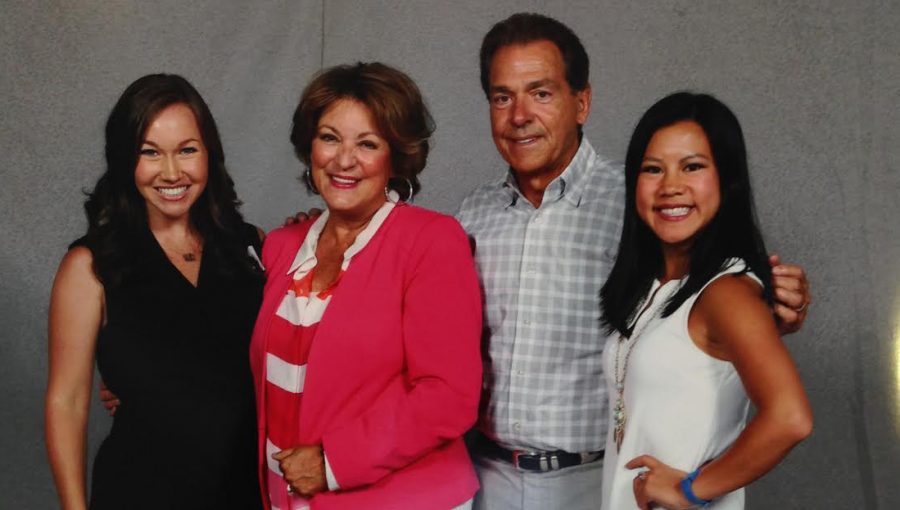Anna Lisa Weigel is one of those few. Weigel serves on the front line of the fight against cancer at The University of Alabama, but it was not always this way.
“I remember being afraid of it,” Weigel said. “I remember thinking, ‘Wow, I hope I never get cancer because people who get cancer die.’”
Weigel became involved with the American Cancer Society in high school in 2002 as a volunteer. It was not until 2011 that her interest in cancer really spiked, she said.
“My uncle was diagnosed with stage IV melanoma,” Weigel said.
Weigel, born and raised in Tuscaloosa, graduated from The University of Alabama in 2009. Since graduation, she has been involved on campus for three years as a relay specialist. In total, Weigel is in charge of five relay committees in different counties in Alabama. Weigel returned to her UA roots because of the students’ passion, she said.
“Y’all are so driven,” Weigel said. “Whatever you’re passionate about, you’re willing to put your voice, time and energy towards it.”
The Relay for Life movement at the University is becoming more successful by the year, Weigel said. Last year, Relay for Life racked up $70,000 in donations. As for participants, the University’s relay participants increased their numbers by 215 from 2013 to 2014.
“There were 895 participants,” Weigel said. “I was very proud of that number.”
The University’s current relay president, Christin Spencer, said it is not just the students who are passionate about what they do.
“Anna Lisa’s passion and energy helps motivate all of us,” Spencer said. “She is incredibly caring and invested in our lives.”
However, with support for Relay for Life comes criticism.
“Cancer used to have a bad connotation and people were reluctant to give because they didn’t really see any survivors,” Weigel said. “They didn’t see what their money was going towards.”
Weigel’s goal is to not only leave the relay with donations, but to also have the participants walk away with a new perspective. She said she wants the event to be mission driven and to have people know what the American Cancer Society aims to accomplish.
“We try to keep changing,” Weigel said. “If you want to be successful, you have to continue to change.”
There is one thing she said does not change for her.
“I’ll honestly say, and this is rewarding to me, besides seeing the survivors come back year after year, and hearing their testimonies and seeing how they are beating the odds, it is seeing how they are successfully living life after cancer,” Weigel said. “That’s huge. That’s the goal of the American Cancer Society.”









